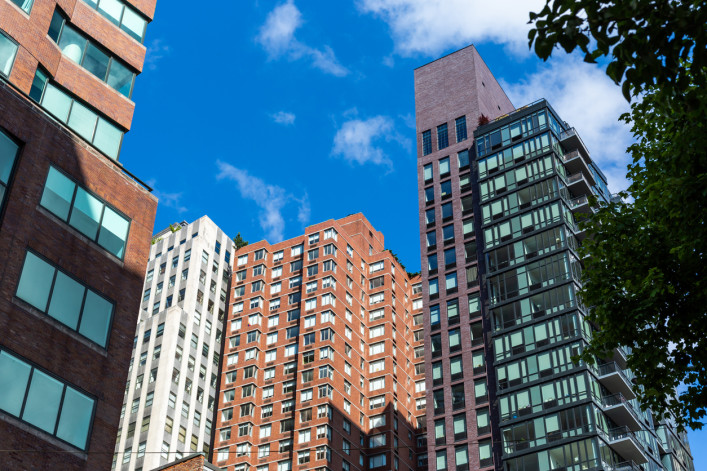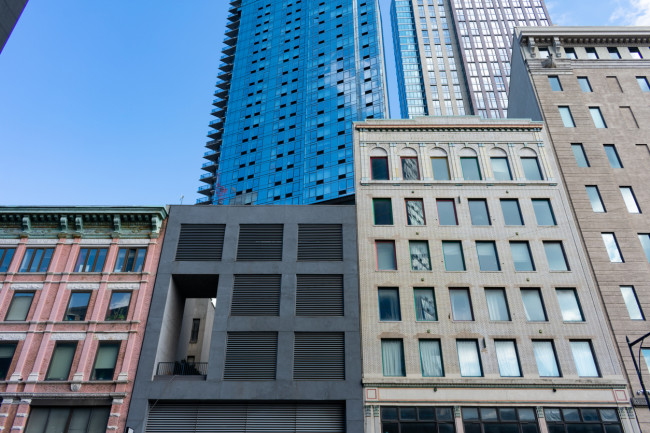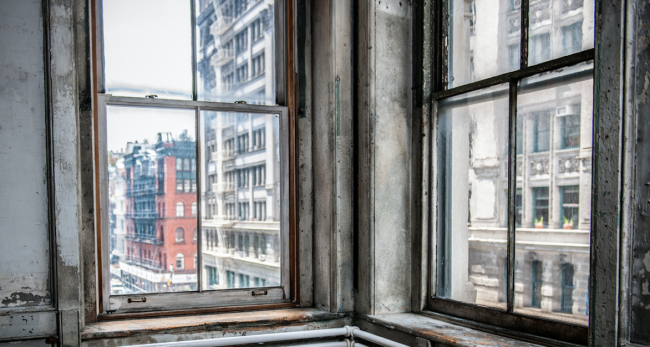What repairs are co-op and condo owners responsible for, and what do buildings take care of?
- In a co-op, a shareholder's responsibilities are spelled out in the proprietary lease
- If the problem is inside the building walls, it's typically a co-op building's responsibility
- Condo owners are responsible for making repairs but can also sue for negligence

"Nine times out of 10, windows are the responsibility of the co-op," said attorney Andrew Freedland.
iStock
When you own a New York City apartment, some things inevitably need fixing. But it can be difficult to know what are you responsible for and what your building is on the hook for. For example, you may need help figuring out whose job it is to replace the windows. Or what the board's role is if there’s water damage from a neighboring apartment.
Answers to these questions depend on whether you own in a co-op or a condo building. When you buy a condo, you own the property and get a deed. A co-op building, on the other hand, is structured as a corporation with a board of directors, so instead of receiving a deed you are a shareholder.
As a co-op owner you sign a proprietary lease, an agreement that has similarities to a lease in a rental building.
In addition, for NYC renters, there's a set of rules called the warranty of habitability that details the services a landlord must provide in order to keep the building and apartment safe and livable at all times. These rules also protect co-op owners. In a condo building, there's no warranty of habitability between the board and unit owners.
Here are some of the most contentious maintenance issues and guidance on who typically is responsible for them.
[Editor's note: A previous version of this post was published in September 2021. We are presenting it again with updated information for August 2025.]
Window replacements
In a co-op, a shareholder's responsibilities are spelled out in the proprietary lease. Attorney Marc J. Luxemburg, a partner at Gallet Dreyer & Berkey, said a good guide is to use what he called "the rule of thumb nail." If you put your thumb nail against the wall and wiggle it into the plasterboard, you can get it a fraction of an inch into the wall. That's about as far as the shareholder's responsibility goes.
"Anything you can touch with your finger or finger nail is a shareholder's responsibility," he said.
So the structure of the window and the maintenance of the exterior is typically the responsibility of the board but the shareholder will have responsibility for maintaining the interior.
"Nine times out of 10, windows are the responsibility of the co-op," said attorney Andrew Freedland, a partner in Herrick's real estate department. He said that in most cases, if the window frames are in disrepair, a co-op board has a responsibility to maintain them. However, the majority of co-ops were converted in the 1970s and 1980s, and in some cases the proprietary lease has been updated. If your lease has been amended, responsibility may have been transferred to the shareholders.
It's important to remember that the warranty of habitability doesn't provide for all situations involving a window. A co-op board has a responsibility to make sure apartments are fit for human habitation but isn't responsible if damage is caused by a tenant or shareholder. For example, if a resident throws a bottle and it breaks the window, the co-op building wouldn't be responsible. And if the window is scratched or discolored in some way, the damage would not fall under the warranty of habitability.
Water damage
If there's a plumbing issue that's unrelated to a fixture within the apartment, in most cases the responsibility for repairs will fall on the co-op board. Again, you'll want to take a look at your proprietary lease to make sure. If the problem is inside the building walls, it's typically a co-op's responsibility under the lease. If it occurs outside of the walls, such as an issue with the faucet, toilet fixture, or sink, usually it's the shareholder's responsibility.
That's why it's important to have homeowner's insurance. Freedland said a standard '80s-style lease does not typically have a requirement that shareholders get insurance but it's one of the most frequently requested proprietary lease amendments.
But what if you're the neighbor in the scenario above and the shareholder who's responsible is being slow to make repairs? Perhaps you're worried there's mold growing in the walls. In some cases it makes sense for a board to assume responsibility for basic repairs to save time. The board may fix the problem and pass on liability later. One reason: The board also has a responsibility under the warranty of habitability to assist affected neighbors.
Again the situation is different for condos: In a condo you have to fix it yourself and sue a culpable neighbor or board later. However, to be successful, you'd need to prove negligence on their part.
Paint and wallpaper
Landlords—and by extension co-op boards—are required to paint or cover apartment walls with wallpaper. Your apartment walls should not be exposed sheetrock. Very often the proprietary lease will, however, say shareholders are responsible for painting.
Perhaps the remedial mold work from your neighbor's water damage requires a hole to be made in your wall. A co-op board has a responsibility to make sure the wall is properly repaired and painted. Are they required to rehang your expensive wallpaper? No. You'll likely get a coat of primer.
As a shareholder in a co-op, it's possible you could call 311 and get a violation against a board if the paint or wall covering in your apartment is bad shape but that is an aggressive move that can backfire.
"The legal codes don't supersede the proprietary lease," Luxemburg said, so what might happen is the co-op board will, if forced to by the courts, paint your apartment to meet the code but then charge the shareholder for the work. You might even have to pay the legal costs.
These are not issues that are relevant to condo owners. However, if you rent out your condo and become a landlord, you'll have obligations to your tenants under the warranty of habitability.
Electric wires, steam risers, and your front door
If you're using the "rule of thumb nail" to determine who is responsible for what, Luxemburg pointed out there are a couple of exceptions.
The first: Electrical wires in your walls. You might not be able to physically touch the wiring but it is typically a shareholder's responsibility. This means, if you change any of the electrical systems in your apartment, you take responsibility for the quality of the work.
Another exception in prewar co-op buildings is the steam riser. These are pipes that are very often exposed and run from floor to ceiling to release steam from the boiler. The maintenance and repair of these risers is a co-op board's responsibility.
The front door of your co-op is another exception. "It belongs to the board," Luxemburg said, although the painting and decoration falls on the shareholder. The door must be fitted with a standard lock but if the shareholder adds a second, for additional security, that is not the board's responsibility.
—Earlier versions of this article contained reporting and writing by Emily Myers.
You Might Also Like



























